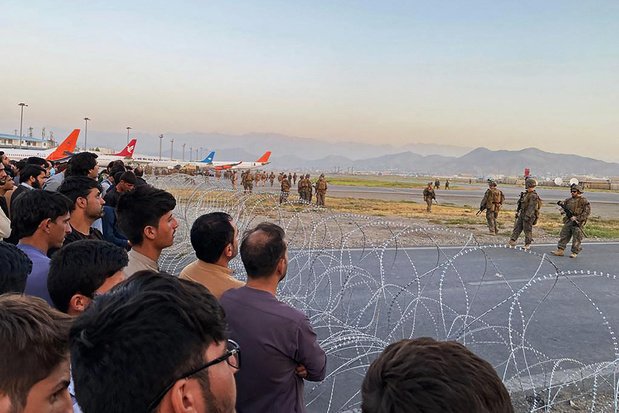Since the fall of the Afghan capital Kabul to Taliban forces this week, Belgium has been preparing the evacuation from the country of its nationals and key workers.
According to the latest figures, only 16 Belgians have so far been airlifted out of the stricken country by Belgian forces, despite the fact that four transport aircraft have been deployed to carry out a rotation of evacuation flights.
To put that figure in perspective, another 19 Belgians escaped Afghanistan on flights organised by the Netherlands.
The plan had been to bring out Belgian diplomats and other nationals, as well as key Afghan collaborators, including those who had been employed as interpreters by Belgian forces during their 20-year occupation.
Those people, more than foreign nationals, are likely now to be victims of Taliban revenge, precisely because they did collaborate with ‘the enemy’. And not only those who worked directly with occupying forces. According to the Taliban’s ways, their families are also at risk.
“Conditions remain very volatile and complex,” stated foreign minister Sophie Wilmès (MR). “The situation is extremely difficult, especially at the entrance to the airport. We hope something changes in the coming days.”
The 16 lucky evacuees were part of a group of 442 Belgians and their families, as well as Afghan workers, Luxembourg citizens, and other who have permission to reside in Belgium. They boarded a C-130 transport plane at Kabul airport yesterday morning.
Later in the day on Friday, another transport landed, but took off again empty. During the brief slot between the two flights, none of those waiting to board had been able to make it through the heavy guard placed by the Taliban around the airport.
That was made more complicated by US troops, also guarding the airport until 31 August, who appeared to have some trouble identifying those who had the right to board the planes.
Another two Belgian planes planned to follow on in rotation had to be cancelled after Pakistan refused permission for them to stop at Islamabad, from where the planes run a shuttle service aimed at bringing people to safety.
"We have more planes than passengers," NATO secretary-general Jens Stoltenberg said after a meeting of foreign ministers from NATO member states. “The big challenge is getting people to the airport and then onto the planes. We will work hard to improve that.”
Belgium will make another effort today.

